Bali is packed full of history, like everywhere else on planet Earth. In this miniseries, we are going to touch on some key points in Bali’s timeline. The ancient era, the colonial times and the lead to up to modern paradise we know and love today.
This article will be a broad overview of the ancient era. But keep an eye on our Bali Reply Facebook for updates on further periods.
Early Inhabitants
The island of Bali was first inhabited by Austronesian people who emigrated from Taiwan back in 2000 BCE. They travelled through Sulawesi and South China – making the modern Balinese culturally and linguistically similar to their neighbours in Malaysia, the Philippines and of course their fellow countrymen. These early inhabitants are believed to have travelled further eastward, making settlements and influencing cultures throughout the Pacific.
Cleared were the jungles native to Bali to make room for Neolithic villages and their culture grew exponentially. Higher members of society were buried in oval stone sarcophagi. Finished with the heads of humans or animals carved into the stone.
Injection of Religion
Although now a province of Indonesia, during the ancient era the island was an independent state in charge of its own internal affairs. It’s native Balinese religion a concoction of Buddhism and Hinduism practiced in tandem and in peace.
The same Buddhists left the first written records on the island. These came in the form of clay pallets etched at the base of clay figurines. They date from the 8th Century CE and have been found in Pejeng, Tatiapi and Blahbatuh.
It was during this period that the stone temple of Goa Gajah was constructed. To this day it still shows the Buddhist and Shivaite iconography engraved within its walls. This was also when the subak method of rice cultivation was developed on the shores of the island. As of June 2012, those fields in Jatiluwih were enlisted as a UNESCO World Heritage site.
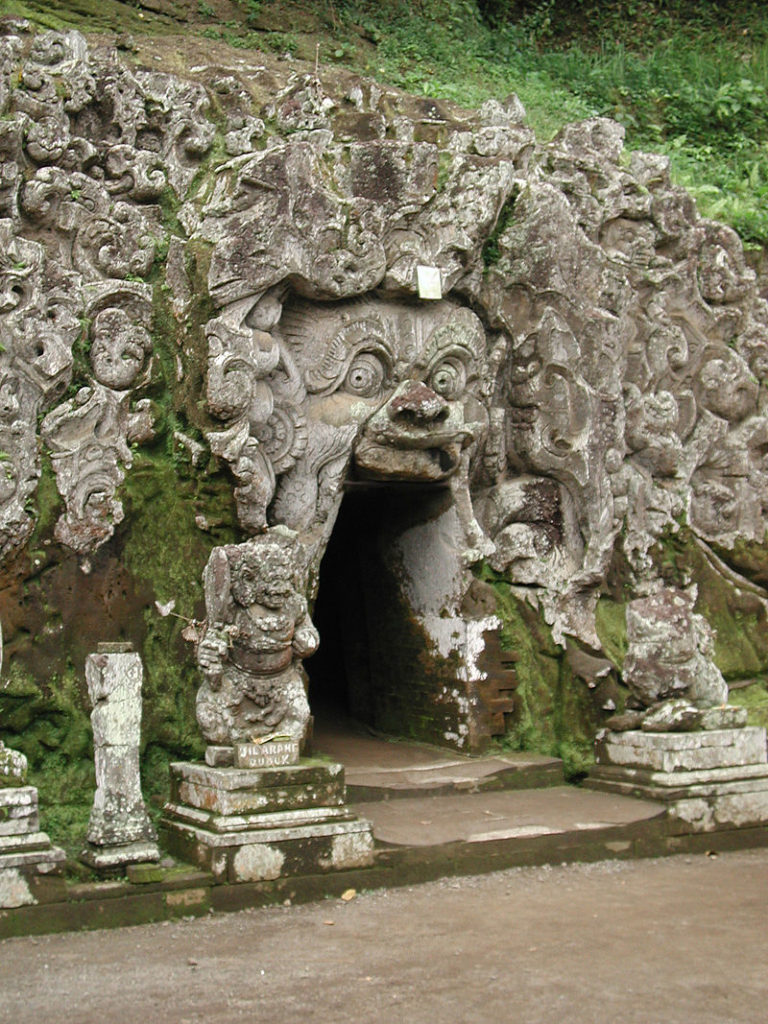
The oldest ritual in human history dates back to this period. It is known as the Nyepi, a day of silence and meditation where the entire island is required to stay indoors. Read our article on this special day in Bali, and discover the history of the Ogoh-ogoh parades that skulk through the island attracting demons the day before.
Royalty, Empire and Independent Kingdoms
The earliest written mention of Balinese royalty is of Sri Kesarivarma in 914AD. Which can be found inscribed on the Belanjong Pillar in Sanur, an important artefact in Bali History. It is written in both in Sanskirt and Ancient Balinese. Scriptures show that his reign ended between February 914AD and July 915AD, although no records show when his reign began.
There is speculation that he was a Buddhist King of the Sailendra Dynasty on a military expedition from neighbouring Java. However, this has been debated.
What cannot be debated is the Indian, Chinese and Hindu influences that imprinted the island in its early years. This is evident as Bali is the only Hindu-majority area of Indonesia. Which is the largest Muslim country on the planet. On the island, 83.5% of residents today still adhere to Balinese Hinduism.
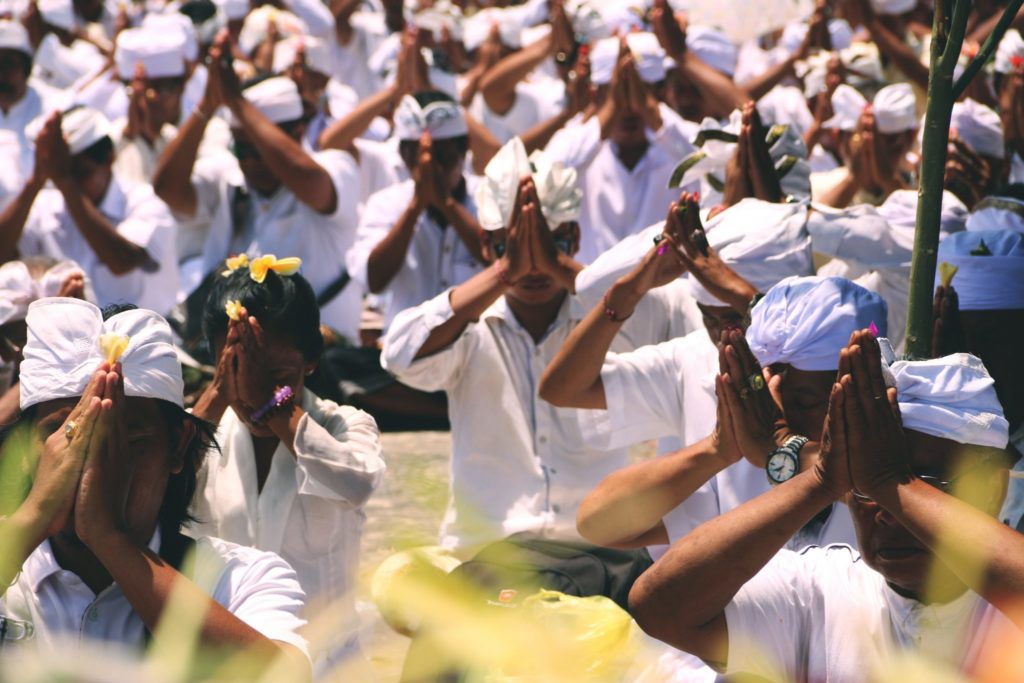
Sometime after, around 1343AD, Bali came under the rule of the Hindu Majapahit Empire. This Javanese empire was at its peak under the leadership of Hayam Wuruk. His conquests spanned from Sumatra to the island of modern-day New Guinea. Historians believe the empire was one of the greatest in history, and its shape is very similar to the nations borders today. Bali was a member of this empire until its demise in 1520 AD.
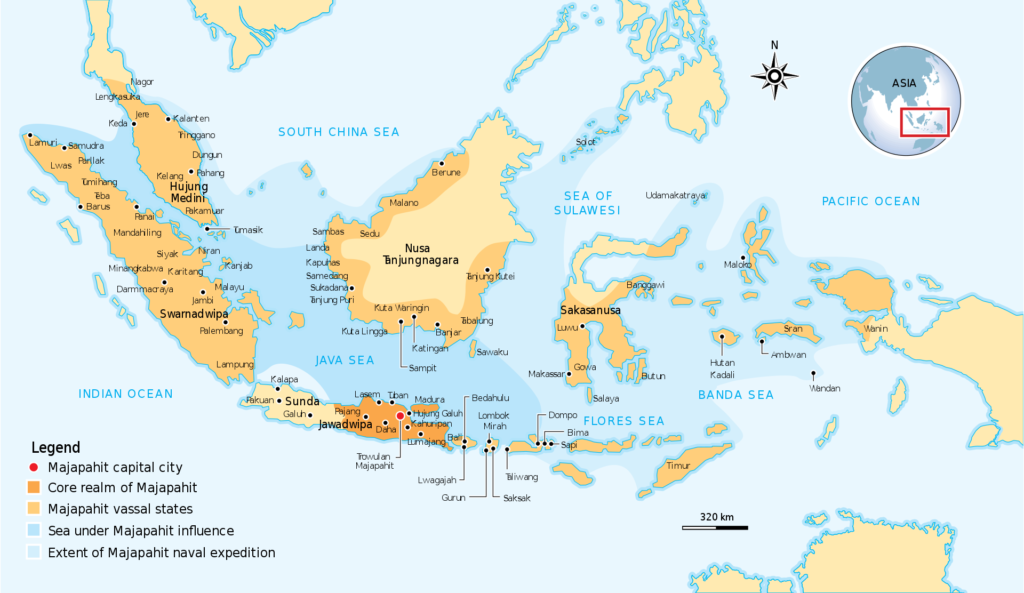
The Balinese government then separated into small independent Hindu Kingdoms that spread across the island. Things remained this way for the next 386 years as the Balinese national identity was formed. Predominantly around their culture, economy and art.
The independent nation lived in relative peace until the arrival of the imperialist Europeans.
That’s all for today, but join us next time on Bali History as we look over the Balinese colonial age, and the impact it had on its future.

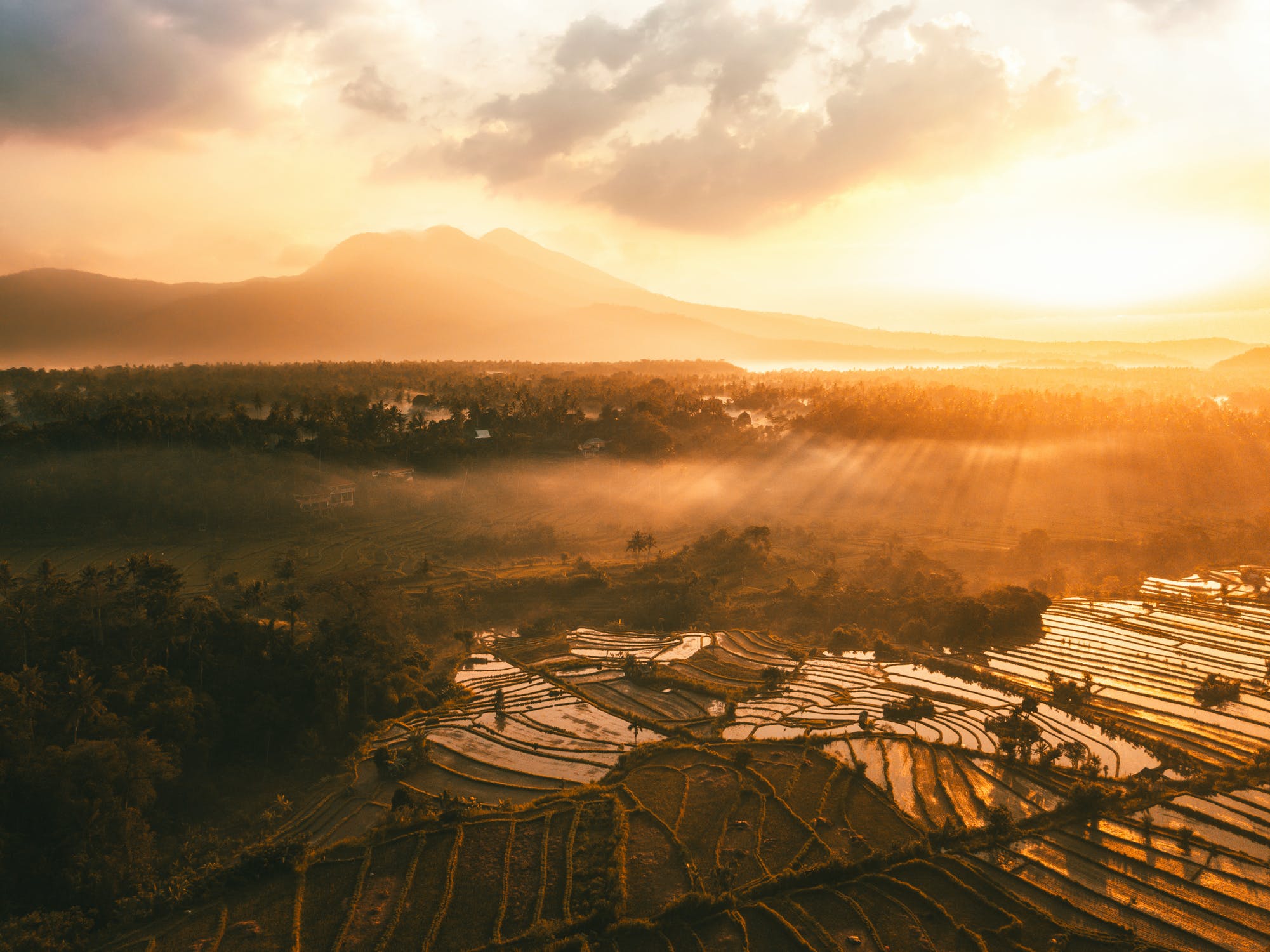
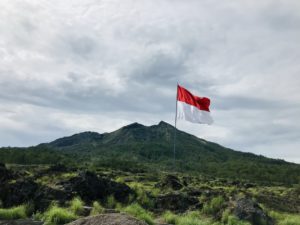

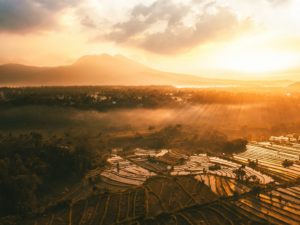

Add a comment